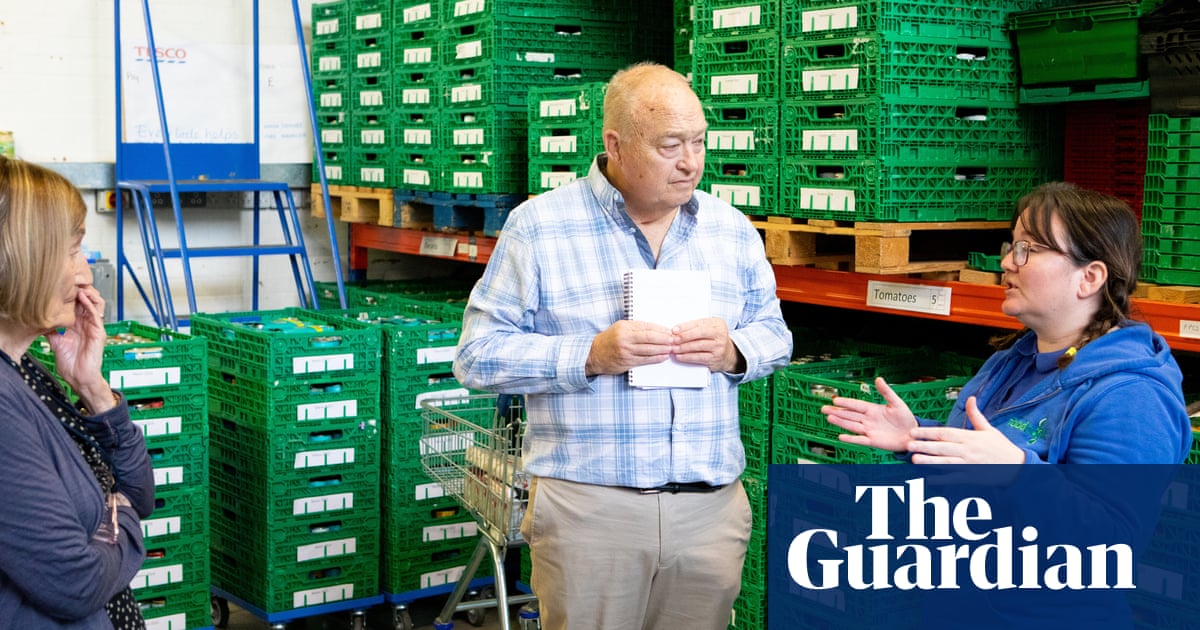
aren Washington is a New York-based community activist and urban farmer who coined the term “food apartheid” to describe the structural inequalities in America’s food system. It’s by design not accident, she argues, that people of color are denied access to nutritious affordable food, farmland and business opportunities in the food industry.
For more than 35 years, Washington has pushed the predominantly white food justice movement to tackle the root causes of these inequities through transformative grassroots action and political pressure. She is the co-founder of the La Familia Verde Garden Coalition, the Black Urban Growers and most recently the Black Farmer Fund, a community wealth building organization investing in Black food entrepreneurs.
Washington, 67, currently divides her time between her home and community garden in the Bronx, New York, and upstate in Orange county, where she started the Rise and Root farm in 2014 after retiring as a physical therapist.
What are your earliest memories about food?
Food was the basis of family gatherings. Every holiday we went to my great grandmother’s and the food was exceptional, everyone cooked. We were lucky enough to have three meals a day – my dad fished and worked in a supermarket so we always had fresh produce, and my mom was a good cook. But growing up I was aware that some kids were bullied and ridiculed because their parents were on welfare and got groceries with “do not sell” USDA stamps.
What sparked your interest in growing your own food?
Moving to the Bronx in 1985 and having my own backyard for the first time. I went to the library and read gardening books, and grew my first collard greens, eggplants and tomatoes. It was the tomatoes that changed my world. I hated them growing up, they were pale and tasteless, so I was astonished that they were red and grew on a vine. I’d never tasted anything so sweet and delicious! It was so incredible, I knew I had to start growing my own food.
In 1988, while working as a physical therapist you co-founded the Garden of Happiness, a community garden across the street from your house on an abandoned plot of land being used as a dumping ground for garbage. What motivated you and how easy was it to get people interested?
At the time a lot of my patients had food-related health problems – type 2 diabetes, hypertension and obesity – which led to problems like stroke, end-stage renal disease, amputations, blindness. I’d look in the kitchen and find the cookies, cake and sodas. These were people who grew up on farms, got all their food from the fields, whose parents were never sick, but had now succumbed to a food system which was killing them. The bottom line is that it’s too hard to access healthy food and too easy to get unhealthy and fast food. In this area it was mostly Puerto Ricans and southern Blacks so it was heaven for them to find a spot to grow food that they were used to growing at home, and they passed on a lot of that technique and wisdom to me.
The USDA (Department of Agriculture) coined the term “food deserts” to describe low income communities without access to nutritious food which is now widely used, how helpful is this framework?
There’s a stigma attached to terms like food desert which disenfranchises and disempowers so many of us. It’s only helpful for bureaucrats and statisticians, it doesn’t get to the root problem which is hunger and poverty. The fact is the food system is racist, and access to food is based on color of skin, how much money you have and where you live. Deserts are natural and have food, food deserts are manmade, not natural. Food is a human right. It’s not natural for people to be living this way and eating this way.
What do the terms food justice and food sovereignty mean to you?
These are active social movements working to transform the food system to change the inequities we’ve known about for many years, and shift the power back into the hands of people who have been marginalized for so long. These grassroots movements are about action, and working proactively to dismantle racism and social justice. But these terms have been co-opted by people to repeatedly denote the issues and hold hearings and listening sessions with legislators and committees. I’m tired of talking, people have been listening for decades, at this point in time we all know what the problems are. For me, it’s about what you are doing about it.
There are several proposed bills – the Farm System Reform Act, Food and Agribusiness Merger Moratorium and Antitrust Review Act, and Justice for Black Farmers Act – which seek to redistribute the power in the food system, are new policies and legislation enough to change things?
We can’t take the pressure off legislators, we have to hold them accountable because for so long they’ve been complacent and silent, but those days are over. We need to understand the power of our vote and our money. But that’s not enough, grassroots movements are also crucial to taking back power. This means re-educating people. I never got anything in history books about my contribution as an African American to the food we grow and to the dishes that we have created. We were brought here from Africa because we were agrarian people. This country’s economic system was built on the backs of enslaved and indigenous people. We have been brainwashed to think we played no role, but we need to redirect the falsehood into truth and power.
Black farmers have long been disenfranchised by racial discrimination in agriculture and finance, and through systemic exclusion from federal programs. As a result, the number of Black farmers plunged from nearly 1m in 1920 to fewer than 50,000 today. What are the barriers facing farmers of color today?
Land, resources and capital, without a doubt. Out of 57,000 farmers in New York state, only 139 are Black. The average income of a white farmer in the state is $48,000 a year, for a Black farmer its minus $910 a year, and these inequities persist across the country. This is why I’m raising hell out here, talking about injustice. We started the Black Farmer Fund in 2019, and last year we raised $1m without a cent from the city or state which will go to Black farmers and businesses in food. If you want small farmers to get access to money from the USDA or the state, you have to make the process more simple. The current system is set up for us to fail and be disenfranchised.
Even before the pandemic, one in 10 Americans were unable to feed themselves and relied on food banks, is this a sustainable solution to food insecurity?
Non-profit food banks and food entities are mostly white-led and [operating] mostly in communities of color. So as long as we’re poor and hungry, they keep making money. It’s such a rip-off and I want them out of my communities. These entities came in promising to help us, but 15 years later and nothing has changed because they’re pimping us to get money. I don’t know how they put their head on a pillow. Handing out food isn’t enough, it just makes people working in pantries and soup kitchens feel good about themselves.
The monopolization of the food system from seed to supermarket has led to a huge decline in biodiversity, why does this matter?
Biodiversity in the ecosystem is critical for the planet to survive. You want to see different plants and flowers in the fields, not rows and rows of corn or soya. We’re also losing diversity of seeds and plants because of climate change. We need to go back to our indigenous roots where diversity of mother nature has always been critical.
What has the pandemic exposed about the food system?
That the food system is not broken nor does it need to be fixed. It’s a caste system doing exactly what it’s meant to be. We know most of the power is in the hands of white men, while the majority of farmers globally are women and people of color. We know that bad-quality food goes into communities of color and the healthy food goes into affluent white communities. We’ve known all this for decades. The food system has to change and that change comes with shifting the power. You cannot continue to push people to the brink of starvation or they’re going to rebel. We have a food system that is exploitative and extractive, and we have to take back power.
In June, the Thurgood Marshall middle school in Harlem will inaugurate a community garden in your name. What’s next for you?
I’m 67 years of age, and as a leader you need to know when to pass on the baton to the next Karen Washington. I’m going to sell up my house in the Bronx, leave the community garden and move to Georgia to be with my family. Covid opened my eyes to what’s important, and life is short. In my heart of hearts, I know the whole urban ag scene is going to change when marijuana is legal. There will be battles over land use and resources, and I don’t want to be in another fight. I’ve done a lot, I’m thankful for that and want to go out on a high.












